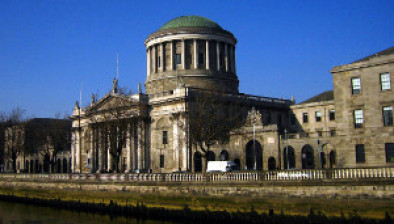High Court: State risks falling short of ‘moral ideal’ over treatment of LGBT asylum seeker

Killian Flood BL
A High Court judge has criticised the reasoning of the Minister for Justice and Equality in a decision refusing protection for an LGBT asylum seeker.

About this case:
- Citation:[2021] IEHC 32
- Judgment:
- Court:High Court
- Judge:Mr Justice Max Barrett
The applicant, known as Mr X, was refused permission to remain in the State despite claiming that he was bisexual and that he would be subjected to persecution if he was returned to Nigeria.
The court said that the granting of asylum was an “exercise in humanity” and that “there are moments in the progress of Mr X’s application when an onlooker might wonder at how the State has proceeded”.
The reasons offered by the Minister as to why he did not believe Mr X was bisexual risked falling short of the general moral ideals recognised in the asylum system, the court said.
Background
Mr X was a Nigerian national and claimed asylum in Ireland in 2016. In May 2017, following an interview with the Minister, he was refused permission to remain in the State and a deportation order issued. The Minister did not believe Mr X’s assertion that he was bisexual and rejected his argument that he should not be returned to Nigeria under the principle of refoulement. Mr X received a copy of the decision together with a report of the International Protection Officer’s examination pursuant to section 39 of the International Protection Act 2015.
It transpired that the section 39 report which was originally presented to Mr X referred to the wrong person in the recommendation section and, a week later, the Minister issued a new section 39 report containing the correct name. Further, the Minister did not provide a written decision of his opinion on this issue of refoulement to Mr X.
Mr X subsequently brought judicial review proceedings in November 2019 seeking to challenge the refusal on two grounds. First, the applicant claimed that the permission to remain decision was unlawful because it had named the wrong person in the report. Second, the applicant said that the deportation order was vitiated by the failure of the Minister to provide a written decision of his opinion on the issue of refoulement.
High Court
The judge, Mr Justice Max Barrett, refused the first ground of appeal on the basis that Mr X was out of time to make the complaint. The court noted that the Illegal Immigration (Trafficking) Act 2000 required the applicant to bring his appeal within 28 days of the section 39 recommendation. In this case, the applicant had waited nearly 30 months before seeking to challenge the report.
The court was not satisfied that there were substantial grounds for contending that the section 39 report was invalid. The error in the report was a pure administrative oversight and had been corrected swiftly by the Minister once the mistake had been made. Moreover, the applicant had the benefit of legal advice throughout his asylum application and as such there was no good reason to allow Mr X an extension of time to appeal the issue.
On the second issue, the court said that Mr X had actually been provided with reasons for the making of the deportation order in the notice of the deportation order which issued in October 2019. The court also held that Mr X had always been aware that the Minister did not believe that he was bisexual and so it was obvious why the Minister did not accept his refoulement arguments.
For these reasons, the court dismissed the application.
Comments on Minister’s approach
However, Mr Justice Barrett made some notable comments on the Minister’s opinion that Mr X’s was not bisexual. Despite recounting several sexual encounters with men, the Minister argued that it was not credible that a man raised in a “restrictive environment would engage in behaviour both unacceptable and outlawed in the society in which he lives”. The judge criticised this point, noting that growing up in a difficult environment did not mean that a person will avoid expressing their sexuality. The court said that the Minister should be aware of this, considering how many people grew up in Ireland when homosexuality was outlawed but still expressed their sexual orientation.
Further, the Minister had determined that Mr X would not have naked pictures of himself and his partner on his mobile phone because it could lead to a prison sentence in Nigeria. Again, the judge rebutted this point, stating that if the mere prospect of getting into trouble meant that a person would not commit a crime, then no crimes would ever be committed.
Finally, the court was critical of the Minister’s position that Mr X had not sought the assistance of LBGT rights organisations or attended gay bars in his first few months in Ireland to support a finding that he was not bisexual. The court pointed out that many people go through their lives without becoming involved in rights organisations. Further, the “the notion that a poor man seeking asylum would have money to throw about in bars/clubs speaks for itself.”
The court said that the State risks falling short of the “moral ideal” of an asylum regime because, if the Minister was wrong, then he would be deporting Mr X to a country where LGBT people are “treated badly and suffer greatly”.
Conclusion
The application for judicial review was refused.










